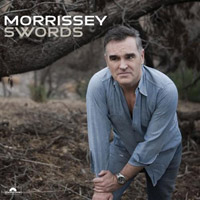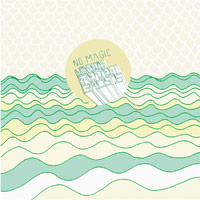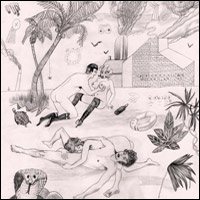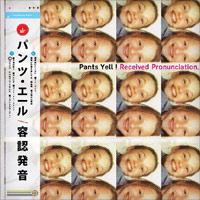
Daptone Gold
Daptone
In the heart of Brooklyn’s historic Bushwick neighborhood is a place where spunk and sweat collide to form a sound so deep it’s pancreatic. Where artificiality is shunned and old school recording methods call the shots. It’s called Daptone Records, and since 2001, the label has championed the continued progression of Afrobeat, funk, R&B, and gospel. Daptone Gold is a compendium of hits and obscurities that unfolds like a veritable roadmap to the soul of soul.
Many of the collection’s 23 cuts were previously only released as 45 singles. The 11-piece Staten Island Afro-soul group the Budos Band, whose three contributions include “Up From The South,” “Budos Rising” and “Ghost Walk,” is freaking prodigious. They slap the jam and bring the hustle of every ’70s urban cop show combined. Daptone’s powerhouse act Sharon Jones and the Dap-Kings perform several songs on the compilation, with “I’m Not Gonna Cry” as a contender for one of the purest funk tracks ever recorded. Their previously unreleased cover of Gladys Knight and the Pips’ “Giving Up” shows that Sharon does, in fact, have a softer side. Instrumental numbers “Nervous Like Me” and “The Stroll Pt. 2” shine more light on the Dap-Kings’ shrewd techniques. They may have backed Amy Winehouse, but this clearly is where they belong. Antibalas Afrobeat Orchestra’s West African version of Héctor Lavoe’s “Che Che Cole” channels ferocity like a 12-piece rhythm army. Lee Fields, who has released 15 albums since the ’70s, pleads with such nerve in “Could Have Been” and “Stand Up” that he earns every comparison to James Brown and Otis Redding. Naomi Shelton & the Gospel Queens come off harsh on “What Have You Done” and “What Is This,” but that’s precisely their modus operandi. Daptone Gold pays tribute to the past, but more importantly ignites a path for soul’s future.
Alexandra Kelley

Swords
Universal
With the passing years and subsequent solo albums, Morrissey, the ever eponymous and sardonic spokesperson for the misunderstood, has drifted further away from the nuanced twists of black humor that marked his best work (both on his own and with the Smiths) and into indulging his taste for melodrama. Similarly, the creations of his backing band have taken on increased bombast, eschewing any similarities to the poppy jangle that Misters Marr, Rourke and Joyce once provided. This lack of subtlety is apparent just gleaning the sleeves of the albums Morrissey and his troupe have created over the past two decades; where once the Moz canonized B-movie stars or fetishized Elvis and James Dean, his covers are now a series of portraiture of himself, his ego replacing the once obscure objects of affection.
All this isn’t to say that Morrissey hasn't made some good records, but just that his aesthetic has changed as he has grown older, even if our perception of it hasn’t necessarily kept up. There’s something almost schmaltzy about him these days, and his latest album Swords, a collection of B-sides and live tracks spanning 2004 to the present, makes this all the more clear. With the freedom that an under-heard B-side provides, the man who first made a name for himself proselytizing the New York Dolls to the British weeklies doesn’t hold back. “Don’t Make Funny of Daddy’s Voice” (the flip to “Let Me Kiss You”) mixes near-metallic riffs with winking lines in both English and Spanish about something getting stuck in pop’s throat when he was a teenager. On “Ganglord” (from the “The Youngest Was the Most Loved” single), Morrissey imagines himself as a victim of police brutality against a strange backdrop of synth rumble and guitar pyrotechnics. Meanwhile, other cuts are mild by comparison, for example “Christian Dior” (the “In the Future When All’s Well” B-side), is inoffensive save for our man telling the title character, “You’ve wasted your life.”
But there are several gems nestled amongst this gnarly bramble. “If You Don’t Like Me, Don’t Look at Me” (another cut from the “The Youngest Was the Most Loved” single) minces a common Morrissey motif of misfit as hero with alluring acoustic nodes in a manner reminiscent of his songwriting partnership with Johnny Marr. On “It’s Hard to Walk Tall When You’re Small,” our hero shows he still has the high notes in him, hitting a falsetto that we haven’t heard since the Smiths’ self-titled debut. In the end, the highs and the lows of the album turn out to not be so dissimilar, as Morrissey has always been a mix of extremes, only divvied out in different doses. He may seem grander now, and we may have (as he once kind of sang) “loved him more when (he was) hopelessly poor,” but he manages to prove himself also hopelessly complex amongst all the bravado.
Stephen Slaybaugh

No Magic
Lucky Madison
For my money the world’s greatest ghosts are Casper and his uncles, the Ghostly Trio, but all these things are up for debate. Throwing their hats into the ring with their debut record, No Magic, are the four-man and one-woman band self-proclaimed as the World’s Greatest Ghosts.
From first blush, it’s a safe bet to assume that the Ghosts are fairly comfortable with the geekier side of life. With song titles like “Mazes and Monsters,” “Magick Words” and “Potions,” you can assume that the hands that now hold guitars have or will once again hold a 12-sided die. But No Magic isn’t a D&D session set to music, although some of the songs do seem directly inspired by the Dungeon Master. Instead, you have an album that’s at turns cheekily clever and delightfully nerdy.
The opening lines “There’s nothing here, and we’ve got a lot to say about it,” sets up the lyrical approach. It’s a very straightforward punchy tack without being literal. There’s also a nice use of sloganeering with lines that would be strong choruses, such as, “If you want the truth you’ll have to dig it out” from “Magick Words” or “We’ve built our houses on the sand!” from “On The Shore.” But instead, they function as little jab punches. Actually, upon first listen it’s weird that there aren’t any hooky refrains, or for that matter, really any proper choruses of which to speak. There are the occasional repeated lines, but there’s nothing here you can use to shill toothpaste or the new iPod Nanos. But it’s to the Ghosts’ credit that the songs are constructed in such a manner that it’s barely noticeable. They’re poppy, but not in the conventional way.
Musically, No Magic is a cross between late-90s indie rock and a less expansive Arcade Fire. While the Ghosts are a bit more rhythmically jerky and less quirky than the Canadians, there’s a similar looseness and use of snatches of violin and other sounds to counterbalance the traditional rock. Yet, there’s also a lightness in tone to the record. It could have easily slid into a silly place given some of the subject matter, but is at once playful and muscular. While you may not agree that they are the World’s Greatest Ghosts, you can say that contrary to their opinion the album is magic.
Dorian S. Ham

No Seasons
Florida’s Dying
No Seasons should come accompanied with a Jacuzzi Boys–crafted compilation of the numerous sub-Nuggets groups from the Sunshine State that the band claims as direct influence. Listening to would-be hits by the Everglades and the Birdwatchers could reveal the preservative passed down through Florida generations that keep the tradition of timeless, breezy, swaggering garage rock intact. In tandem with the Electric Bunnies’ Through the Magical Door, the Jacuzzi Boys’ debut makes a case that there is something inherently laidback in the sound of Southern Florida. But in contrast to the Bunnies’ all-out freakness, the Jacuzzi Boys play it close to the chest, almost clean-cut and fun-loving in comparison.
To these ears, the Cheater Slicks are to blame. In reality “Smells Dead” is the Slicks’ woozy looseness ringing crystal clear, perhaps reimagined as a paisley power-pop outfit. It is debatable in this day and age that the Slicks have birthed one of every five newbie garage disciples, just herein the “slick” is pronounced succinct and capable of breaking county dance laws if not careful. “Island Ave.” is the single that introduced the trio to the world and is strategically implanted among this first batch. It nearly envisions the Jacuzzi Boys as the local cabana band, playing to teenage rebellion in surf and sun. Implying such frivolous climes is unfair, though; there’s really more of a Stonesian mod sophistication to songs like “Komi Caricoles” and “Blow Out Your Lights,” with red-velvet vocals that carry a hefty emotional resonance. Mature as that may read, you’d be mistaken to think there wasn’t some type of party atmosphere, and it would likely play out with the Boys dancing round that Floridian fountain of youth.
Kevin J. Elliott

Received Pronunciation
Slumberland
There’s got be a joke about a band with an exclamation point ending up on a label called Slumberland, but I’m not clever enough to make it. Instead, let’s focus on the Boston trio’s forth album, the curiously named Received Pronunciation. Although to be fair, when your band is named Pants Yell!, curiosity is on a sliding scale.
Received Pronunciation is an odd animal. The record is at turns engaging and frustrating, catchy yet entirely forgettable. It’s a lot of ups and downs for a record that races through nine songs in a lean 26 minutes. The frustrating part is that some songs are too cutesy by half. It’s like the Wiggles decided to record some serious songs on an off-day, but couldn’t quite get the kidcore out of their systems. The song “Spider” is the chief offender (“As scared as you are of me, I’m just as scared as you. You’re the biggest thing I ever saw!”). It’s less than a minute long, but the bad taste will linger. And then there’s the opener “Frank and Sandy,” with it’s chorus of “I’m glad I had more gin than candy!” Despite that mature twist, it wouldn’t sound out of a place on a Raffi record. Some call it “twee” and I’d agree, but not in a positive way.
Yet despite those leanings, there is a lazy kind of haphazard charm about Received Pronunciation. There is no overlabored musical accompaniment or fancy production to cover up any weaknesses. The result is a breezy cadence that seems more appropriate for a summertime release than one in the late fall. But the problem is that it’s so breezy the songs slip out of memory not too long after each one ends. And with such a short run time, it feels strange that the annoying moments seem to stick around more than the enjoyable songs. But on less childish moments there are nice capsulated looks at relationships that seem similar in approach to that of Death Cab For Cutie’s Ben Gibbard. And wouldn’t you know it, lead singer/guitarist Andrew Churchman also sounds eerily like Gibbard.
In the end, Received Pronunciation is just too featherweight to have any lasting impressions. It’s like Cool Whip: enjoyable when it’s there, but when it’s not, no great loss.
Dorian S. Ham
MP3: “Cold Hands”
ALBUM REVIEWS
Tape Deck Mountain, Ghost
Bassnectar, Cozza Frenzy
DJ/Rupture and Matt Shadetek, Solar Life Raft
Weezer, Raditude
Ben Frost, By the Throat
White Denim, Fits
Brilliant Colors, Introducing
Thee Oh Sees, Dog Poison
Holopaw, Oh, Glory. Oh, Wilderness.
Slayer, World Painted Blood
Julian Casablancas, Phrazes for the Young
Maps, Turning the Mind
Stricken City, Songs About People I Know
A Place to Bury Strangers, Exploding Head
